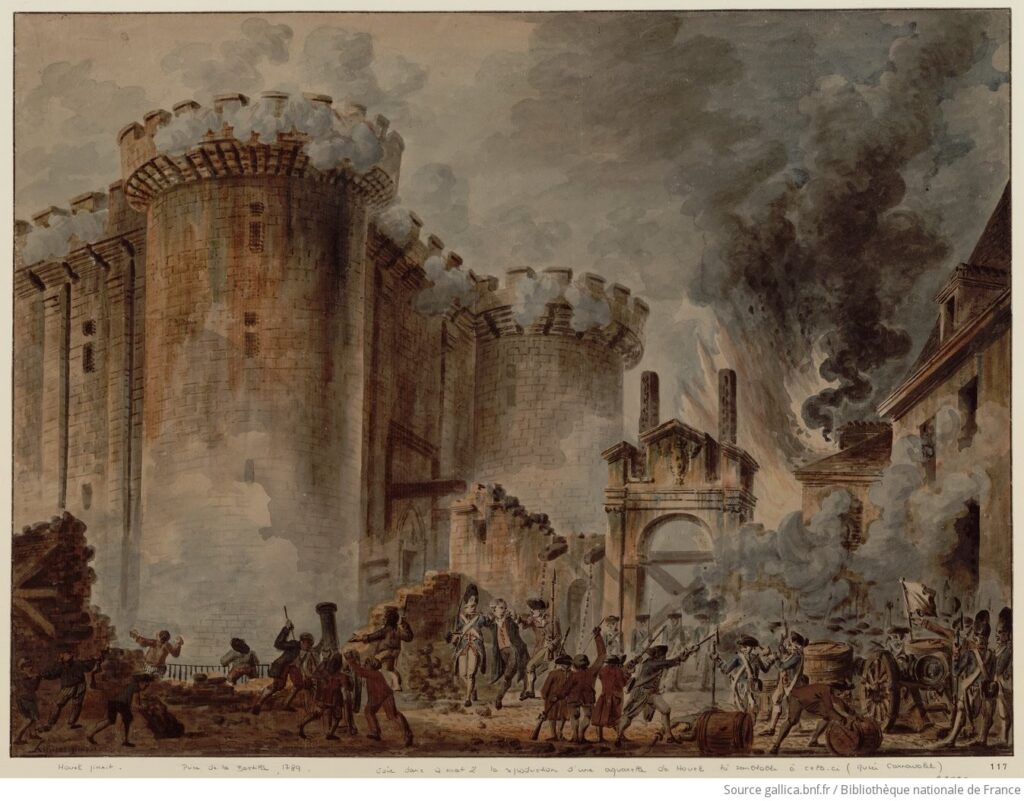
Robert Darnton’s The Revolutionary Temper offers a vivid picture of the moral climate that preceded 1789. He uncovers the accumulated resentment of ordinary people against the Crown, the nobility, and the clergy—a resentment sharpened by hunger and humiliation. Yet emotions, however intense, do not by themselves make a revolution. They ignite revolt, not political transformation. The French Revolution took its direction from ideas already present before the storming of the Bastille: natural rights, liberty, equality, tolerance… These ideas did not arise from popular anger; they gave that anger meaning and form. The encounter between an intellectual ferment and a collective resentment contributed to the revolutionary explosion and its subsequent transformational process. Without the Enlightenment, the resentment would have burned itself out in riots; without the resentment, the Enlightenment ideals would have remained salon talk.
One aspect of Darnton’s narrative points to another cause of the French Revolution: the attitude of Louis XVI. His obstinacy recalls that of Charles I of England a century and a half earlier—a refusal to compromise, to share sovereignty, to recognise that power must sometimes bend to survive. In both cases, the rigidity stemmed not merely from temperament but from a conception of sovereignty forged in early modern Europe: Bodin giving it juristic form, Richelieu practising raison d’État in the service of royal power, and Hobbes systematising it as a philosophy of the State. Sovereignty appears there as an indivisible, absolute authority, incapable of being partitioned without being destroyed. What collapsed in 1789 was not only a political regime but an idea of the State itself – an idea in which the ruler, as guardian of the realm’s unity, could not imagine sharing power without betraying his office.
Ironically, this conception endured after the fall of the monarchy. Rousseau’s Contrat social breaks with absolutism by grounding sovereignty in the people, yet it preserves the same principle of indivisibility. The general will becomes the new sovereign, demanding unity rather than compromise, purity rather than negotiation. The Terror was the dark mirror of absolutism: the logic of indivisible sovereignty reborn in democratic form.
At the same moment, across the Channel, Adam Smith was developing a radically different model of order. In The Wealth of Nations (1776), he described an “invisible hand” aligning private interests with the public good. His harmony of interests presupposed a society where social and economic actors already shared common values and norms—where the Crown and Parliament had learned to coexist, and where conflicts could be mediated within institutions. In that sense, Smith’s optimism was the product of a political equilibrium England had painfully achieved after its own seventeenth-century civil wars.
France, by contrast, lacked such a space of negotiation. Its orders—nobility, clergy, Third Estate—did not merely pursue different interests; they inhabited different worlds of value. When bread grew scarce and authority discredited, no invisible hand could reconcile what was, in essence, incommensurable. The “harmony of interests” collapsed before it could emerge.
Seen in this light, the Revolution reveals the triumph of a passionnate reason, grounded in natural rights, as much as the exhaustion of an ideology of indivisible sovereignty embodied in the king. That ideology partly survives in Rousseau’s social contract, where sovereignty is no longer personified but represented in the abstraction of the general will. In a way, this paradox still haunts modern Western politics, which cling to sovereignty even as they praise democracy.